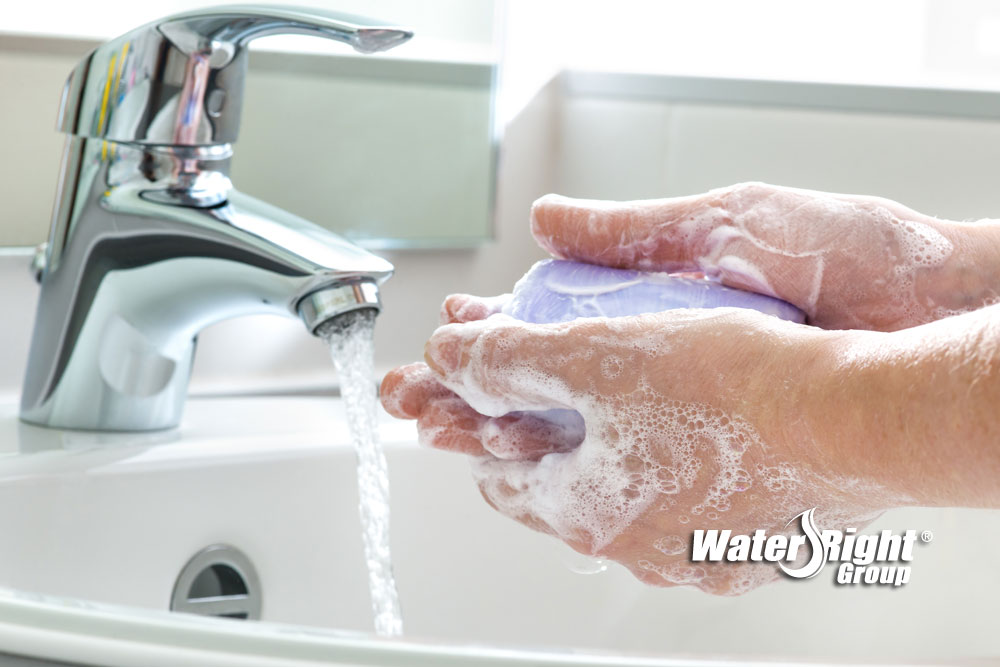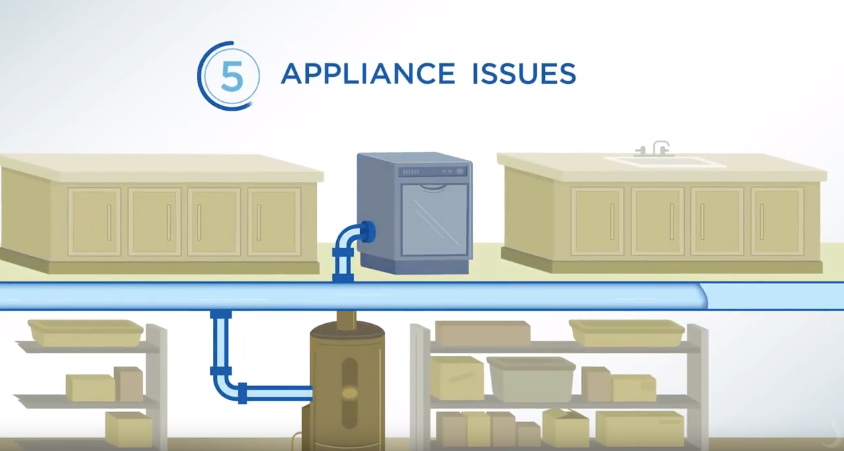
Soft Water vs Hard Water | Benefits for Your Home
From shorter appliance lifespans and higher energy bills to problems getting your home clean, hard water can waste time and money.
With nearly 90 percent of homes in the United States having hard water, it is worth learning to spot the telltale signs of water hardness. Take time to learn about the benefits of soft water and find out what you can do to correct hard water problems and improve water quality in your home.
Hard Water vs Soft Water
Hard water contains dissolved minerals, such as calcium and magnesium. These minerals come from rocks that the water passes over on its way to your home. While these natural minerals aren’t harmful to your health if you consume them, they can change the way your home’s water interacts with appliances and other products within your home. Hard water can even make it difficult to keep your home, clothes, and even your hair and skin clean.
Hard Water Leaves Soap Scum Deposits in the Bathroom
If your bathroom fixtures always seem to be covered in a scummy layer of limescale, hard water could be to blame. What you’re seeing is the calcium mineral deposits building up on the faucet. When those minerals in hard water mix with the soaps and shampoos you use to wash your skin and hair, it forms soap scum. This sticks to the sides of the tub and shower walls, leaving your bathroom looking less than clean. Soft water benefits not only your bathroom cleanliness, but your skin and your hair too. Installing a water softener could prevent these deposits from building up, making it easier to keep your bathroom clean.
Hard Water Prevents Clothes from Getting Clean
When you wash your clothes in hard water, you will probably find that you need to wash them at a higher temperature and use more than the recommended amount of laundry detergent to get them clean. This is because the minerals in hard water react with the detergent to form insoluble salts that build up on your clothes, much like soap scum on your bathtub, leaving their colors looking faded and dull. If you have sensitive skin, these deposits on your clothes could even cause skin irritation.
Clothes washed in soft water often feel cleaner and softer, even if you wash them at a lower temperature. They may even last longer requiring you to buy clothes less often.
Hard Water Is Bad for Household Appliances
Many parts of the United States, from the West Coast to the Great Lakes, have a problem with hard water. In affected homes, hard water can leave mineral deposits in household appliances such as dishwashers and washing machines, reducing their lifespan. If you notice that you have to replace your appliances more often than manufacturers recommend, you could be suffering from the effects of hard water in your home.
What You Can Do About Hard Water in Your Home
If you live in an area with hard water, you do not have to endure the negative effects of hard water in the home. Now that you know about hard water vs soft water, you can choose to protect your home by installing a water softener to remove minerals from the water. As a result, you can save money and enjoy a cleaner home.
For more, watch our video on hard water problems.


